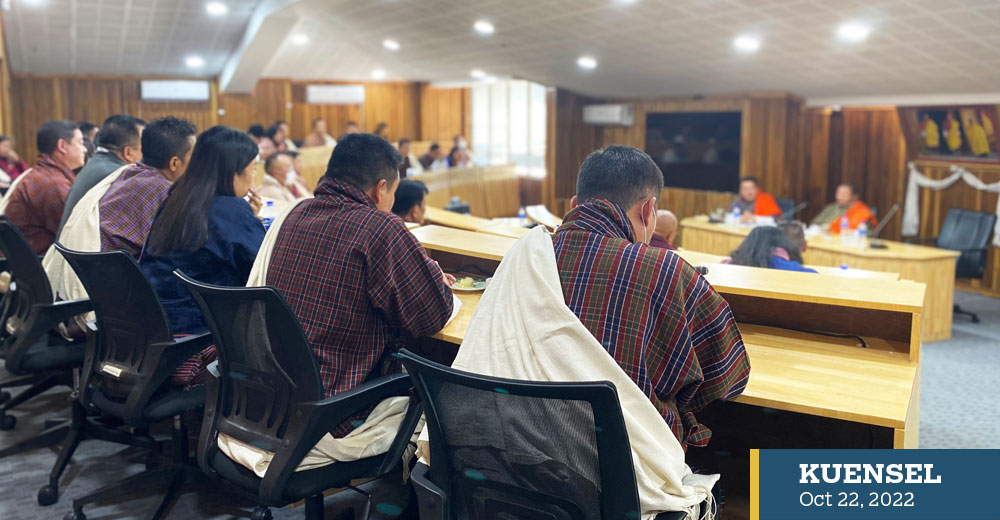…requested Australian govt. for work, holiday and training visa
Dechen Dolkar
The government will look into all possible ways to help Bhutanese study or work in Australia, including asking the Australian government if the government could stand as a guarantor for the financial support for those applying to study in Australia.
This was what transpired when Foreign Minister Dr Tandi Dorji and Labour Minister Karma Dorji met more than 50 education consultancy and placement firms in Thimphu yesterday to discuss streamlining the processes for those who want to study abroad.
According to the foreign minister, the government has requested the Australian government to consider if the government could stand as a guarantor for the financial support for those applying to study in Australia.
Lyonpo said that the government will pay fees, if in case, an individual is not able to pay. The only condition is that it is only in selected fields of study and that there will be a bond between the individual and the government. “He or she will have to come back after certain years and work in Bhutan.”
Despite rumours and anger among many that the government is silently planning to stop Bhutanese from going to Australia, the foreign minister said that he has requested the Australian government to allow Bhutanese to work without having to go through a study programme.
“I have requested work and holiday visas, which I am hopeful about because they have recently given it to Mongolia who had been negotiating for five years. This is our first attempt.” Lyonpo said.
Another way of going to Australia is through a training visa. Under this visa, Bhutanese are allowed to go for training and earn money. They can stay only for two years and return. This is the best solution.
As per the Australian government record, so far there are around 13,000 Bhutanese residing in Australia. This year alone, around 5,000 visas were issued by the Australian government.
In the wake of more visa rejection cases recently, Lyonpo Dr Tandi Dorji said that he had questioned the immigration for the rejection during his recent visit to Australia. “The reason for the high visa rejection was because of a certain surge in the number of visa applications, poor documentation by consultants and the preference given to those pursuing bachelor’s or Master’s degrees.”
However, diploma courses will also be accepted if applicants can produce evidence of why the gap in continuing education. One of the reasons for more visa rejections was because of the same statement of purpose (SOP).
Lyonpo said that when he was at the Canberra Institute of Technology (CIT), the Principal told him that 22 out of 33 visas got rejected which did not happen in the past.
A welcome move?
The government, meanwhile, is also requesting the Royal Monetary Authority to consider and facilitate education loans.
The government has also requested the Australian government if Bhutanese, who studied in English medium school, could be spared from the mandatory IELTS test. “I have told them to assess the quality of English in Bhutan. They said they will look into the matter and may consider it,” Lyonpo said.
However, the government will relook into the requirements of obtaining marriage certificates and the judiciary will make it stringent. A consultancy firm requested private firms notarising documents of those applying to save time.
Lyonpo Tandi Dorji said that they are already in discussion with the courts. “In many countries, notarisation is not done by the court,” he said.
Consultancy firms also requested the government to help those applicants whose college fees were already paid and could not avail of loans from banks.


